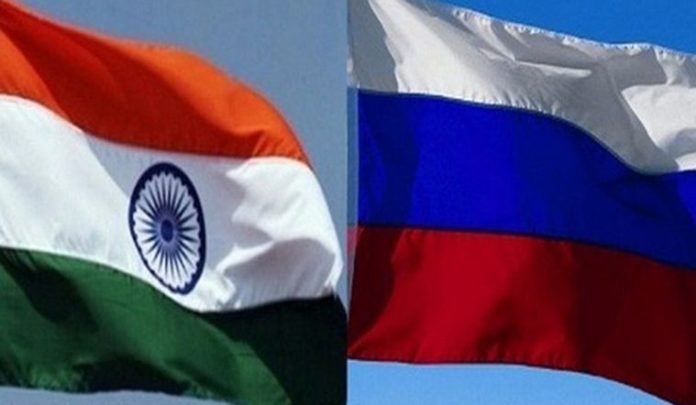New Delhi (NVI): Russia today said it continues to be India’s most trusted partner in reaching its goal of self-reliance, a day after the government announced changes in defence procurement policy to bar 101 items from import.
“Closely following India’s efforts in achieving industrial and technological self-relience. Over last 70 years, Russia remains India’s most trusted partner in reaching this goal,” Russian Ambassador to India Nikolay Kudashev tweeted.
Closely following India’s efforts in achieving industrial and technological self-relience. Over last 70 years, Russia remains India’s most trusted partner in reaching this goal. pic.twitter.com/n72uZeN4V3
— Nikolay Kudashev (@NKudashev) August 10, 2020
Over the last seven decades, Russia has been the mainstay of defence imports of India, which is rated among the world’s biggest arms importers.
In fact, the government recently announced its decision to acquire 21 MiG-29 fighter planes from Russia. The Indian armed forces are already using various versions of MiG and Sukhoi jets, besides a number of other military systems. The largest aircraft carrier in the Indian Navy INS Vikramaditya was also procured from Russia.
Kudashev’s comment came a day after Defence Minister Rajnath Singh said the government has prepared a list of 101 military items whose import would be prohibited in a progressive manner from 2020 to 2024.
He said the decision has been taken to give a push to self-reliance in the defence sector.
The list includes various kinds of military systems, including Light Combat Aircraft, Light Transport Aircraft, basic trainer aircraft, artillery guns, missile destroyers, ship-borne cruise missiles, long-range land attack cruise missiles, communication satellites, multi-barrel rocket launchers, a variety of radars, assault rifles, sniper rifles, mini UAVs and different types of ammunition.
The list will be reviewed every year and additions can be made after consultations with the stakeholders, the government said.
In a series of tweets, Rajnath Singh said yesterday that this is a big step towards self-reliance in defence.
“It also offers a great opportunity to the Indian defence industry to rise to the occasion to manufacture the items in the negative list by using their own design and development capabilities or adopting the technologies designed and developed by Defence Research and Development Organisation (DRDO) to meet the requirements of the Armed Forces in the coming years,” the Defence Minister said.
With this embargo on import of 101 items, it is estimated that contracts worth almost Rs four lakh crore will be given to the domestic industry within the next five to seven years. Of these, items worth almost Rs 1,30,000 crore each are anticipated for the Army and the Air Force while items worth almost Rs 1,40,000 crore are anticipated by the Navy over the same period, according to the ministry.
The embargo on imports is planned to be progressively implemented between 2020 to 2024. The Defence Ministry further stated that the aim behind promulgation of the list is to apprise the Indian defence industry about the anticipated requirements of the Armed Forces so that they are better prepared to realise the goal of indigenisation.
“The MoD has adopted many progressive measures to encourage and facilitate ‘Ease of Doing Business’ by the defence Production entities. All necessary steps would be taken to ensure that timelines for production of equipment as per the Negative Import List are met, which will include a co-ordinated mechanism for hand holding of the industry by the Defence Services,” read an official statement.
More such equipment for import embargo would be identified progressively by the DMA in consultation with all stakeholders, MoD said.
A due note of this will also be made in the Defence Acquisition Procedure (DAP) to ensure that no item in the negative list is processed for import in the future, it added.
Apart from that, the MoD has bifurcated the capital procurement budget for 2020-21 between domestic and foreign capital procurement routes. A separate budget head has been created with an outlay of nearly Rs 52,000 crore for domestic capital procurement in the current financial year.








